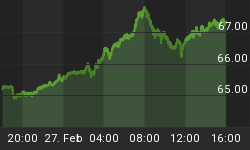Europe now finds itself crushed between two intense pressure points, as the U.S. pushes it to fall in line with sanctions on Iran, while the EU resists and at the same time Tehran says it’s not doing enough to preserve the old deal.
For Europe, there’s plenty at stake, including a multi-billion-dollar deal to develop Iranian gas that French energy giant Total SA has already said it would scrap in light of Washington’s decision to withdraw from the nuclear deal.
Late last week, the European Commission said it had launched measures to protect European business in Iran, with Commission president Jean-Claude Juncker saying: “[…] As long as the Iranians respect their commitments, the EU will of course stick to the agreement of which it was an architect—an agreement that was unanimously ratified by the United National Security Council and which is essential for preserving peace in the region and the world. But the American sanctions will not be without effect. So we have a duty, the Commission and the European Union, to do what we can to protect our European businesses, especially SMEs.”
What exactly is Europe doing, then?
Most notably, it’s re-introducing a “blocking statute” that dates back to 1996, when countries defended themselves from the U.S. trade embargo on Cuba. The move would be retributive and contain two key elements. First, it would ban firms that respect U.S. sanctions, and secondly, it would render US court rulings non-effective in the European Union. It could also end up seeing EU countries imposing sanctions on companies who do comply with U.S. sanctions on Iran.
But so far, if Total SA is a gauge, European companies aren’t confident that this will work.
Last week, Total signaled it could exit Iran, giving up a blockbuster, $4.8-billion Iranian gas project if the U.S. did not give it a sanctions waiver. Another French energy giant, Engie, has also said it would halt engineering work in Iran by November.
Likewise, Danish shipping giant Maersk also said it would wind down its agreements with Iran by November, and German insurer Allianz made a similar announcement last week.
Total’s lack of confidence in an EU counter-move has to do with the fact that these moves would be ineffective for large companies that rely on U.S. banks for financing operations—in Total’s case that’s nearly 90 percent of its financing operations. Furthermore, some 30 percent of its shareholders are from the U.S., according to Oilprice.com, and the company isn’t willing to risk it’s some $10 billion in U.S. assets. Related: The Wild World Of Celebrity Endorsed ICOs
So while Europe remains defiant, its defiance may not have that much muscle because of the high-level reliance on the U.S. financial system.
And in the meantime, Iran is notching up the pressure from the other side, saying the EU isn’t doing enough to preserve the nuclear deal amid the threat from Washington.
“With the exit of the United States from the nuclear deal, the expectations of the Iranian public towards the European Union have increased … and the EU’s political support for the nuclear agreement is not sufficient,” Iranian Foreign Minister Mohammad Javad Zarif said following a meeting on May 20 with EU Energy Commissioner Miguel Arias Canete.
Iran is looking for the EU to take more “practical steps” and to “increase its investments in Iran”—statements prompted by the withdrawal of major European companies.
So how will Europe pull this off? Perhaps our first clue is in a new deal announced on May 17.
Just a couple of days before Zarif’s statement, Iranian media reported that the country had signed a deal with a British consortium to develop the Karanj oilfield, lauding it as the first deal with a key Western ally of the U.S. since Trump’s announcement that he would withdraw from the nuclear deal.
The Western company in question is reportedly Pergas International Consortium, which has signed a preliminary deal with the National Iranian South Oil Co. for the investment of $1 billion to produce 200,000 barrels of crude per day over the next decade. Currently, the Karanj oilfield is said to produce around 120,000 barrels per day.
Related: The Five Most Important Market Indicators
What makes a deal with Pergas different than Total (other than size) is that London-based Pergas does little business in the U.S., so it won’t be as affected by U.S. sanctions and access to the U.S. financial system.
If Europe wants to go unilateral on Iran, it won’t be through its energy giants, or any other giants for that matter.
In the meantime, everyone’s eyes will be on Monday’s scheduled speech by U.S. Secretary of State Mike Pompeo as Washington itself seeks to reach a new nuclear deal with Iran. Germany, France, Britain, Russia and China will also be meeting in Vienna this week to discuss how to maintain the nuclear deal as it is.
By Fred Dunkley for Safehaven.com
More Top Reads From Safehaven.com:
















